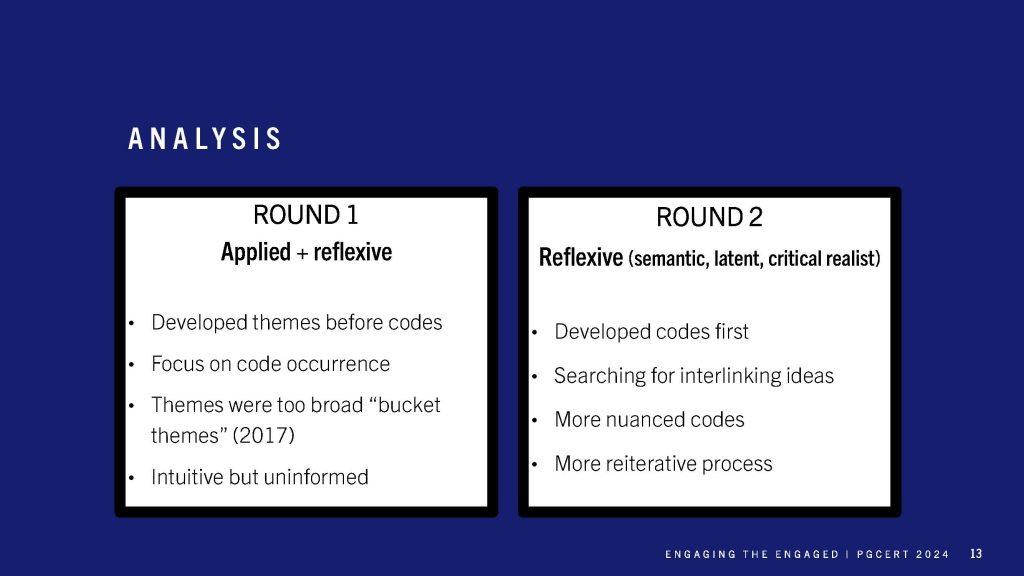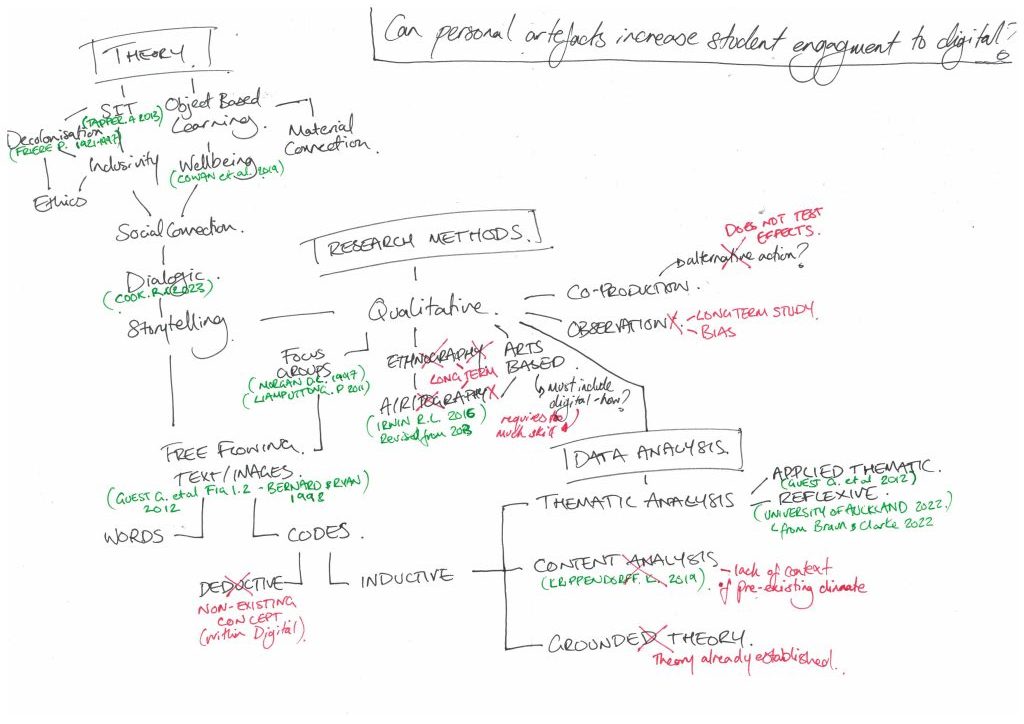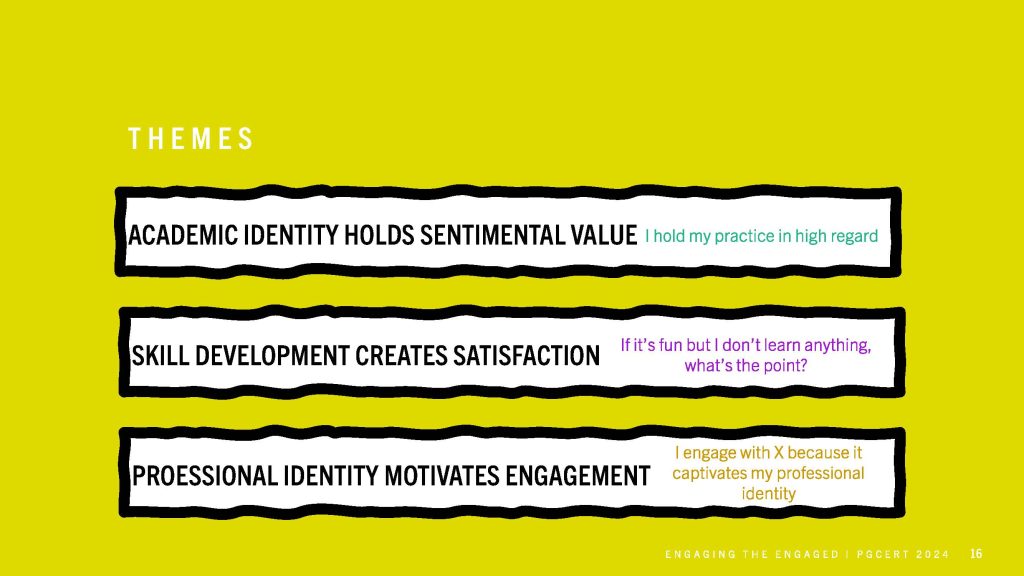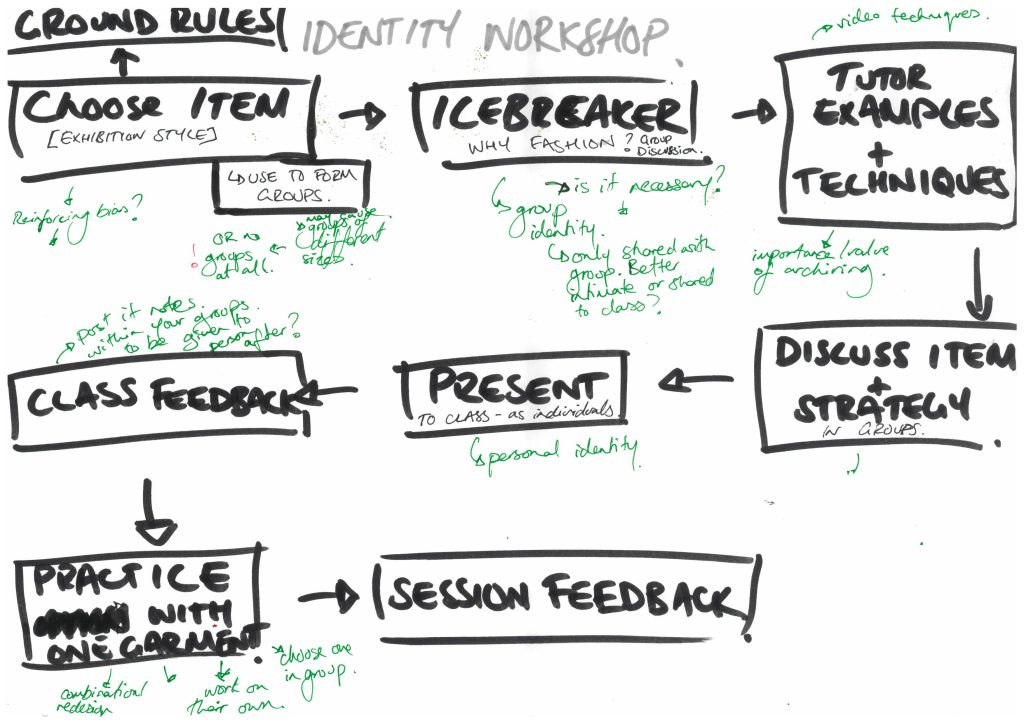-
A Reiterative Process

After analysing the data, I felt the themes were too broad. Spending a substantial amount of time differentiating analytical methods, in a short space of time, resulted in the use of a culmination of analysis methods. After watching Victoria Clarke’s ‘What is thematic analysis?’ (2017) I realised that my themes were instead ‘bucket themes’ encompassing…
-
Content Analysis vs Thematic Analysis
After considering a range of analysis approaches, the most suitable were content and thematic analysis. However, distinguishing between the two was quite challenging. Content analysis sits under qualitative and quantitative methods. For this study I will be focused on the qualitative approach of content analysis which looks at organising codes into categories or themes. These…
-
Reflections on THE ACTION

This Post was edited by Chat GPT to reduce word count Throughout the planning of the action I considered how my positionality, body language and approach would affect the study – see Whose Perspective is being documented. In my previous blog – THE ACTION – I discussed my thoughts on potential bias from observations. I…
-
THE ACTION

This post was edited by Chat GPT to reduce word-count After much consideration, I chose focus groups as the research methodology for their ability to generate diverse responses quickly, emphasizing a moderator approach (Morgan, 1997; Liamputtong, 2011, p.12-15). The moderator/facilitator approach, highlighted in A Pedagogy of Social Justice Education, ‘focuses on process rather than content…
-
Workshop 1 – Whose perspective is being documented?
Word of the Week – Ethnography : the study of people and cultures through participation, being immersed in the research environment In a literature review of R. Jones et al. 2010. Documenting classroom life: how can I write what I am seeing?, an ethnographic study of 4-5 year old children’s behavioural patterns, a few thoughts…


